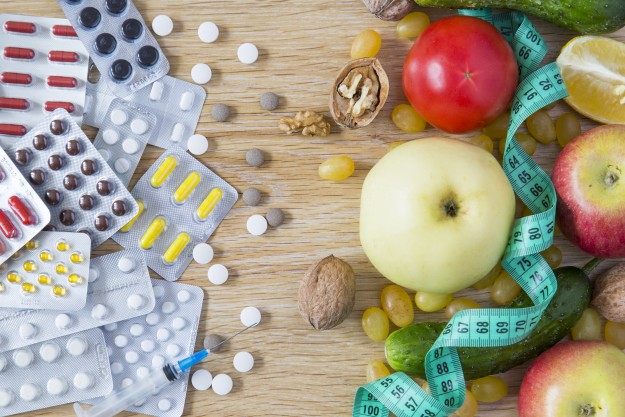If you’re one of the 1.13 billion people worldwide who are suffering from high blood pressure, Johns Hopkins researchers have some encouraging news.
According to a new study our investigators published in the Nov. 12 issue of Journal of the American College of Cardiology, changes to your diet in conjunction with reduced salt intake may be as effective as—or more effective than—drugs prescribed to treat hypertension.
Mediterranean chicken kabobs, tilapia with mango-melon salsa and ginger veggie stir fry could replace diuretics, beta blockers and ACE inhibitors as first-line treatment options for patients with high blood pressure.
In a study of more than 400 adults with Stage 1 high blood pressure, our investigators found that combining a low-salt intake with the heart-healthy DASH diet substantially lowered systolic blood pressure—the top number in a blood pressure test—especially in people with a history of high systolic readings.
The Dietary Approaches to Stop Hypertension (DASH) diet—long promoted by the National Heart, Lung and Blood Institute and the American Heart Association—is rich in fruits, vegetables and whole grains, along with low-fat or fat-free dairy, fish, poultry, beans, seeds and nuts.
Both low-sodium and DASH diets are known to prevent or lower high blood pressure. The novelty of the Hopkins study is that it examined the effects of combining the two diets in adults with early or modest forms of high blood pressure—those considered to be at greatest risk for developing more severe forms of hypertension known to increase the likelihood of stroke, kidney disease, heart attacks and heart failure.
Many of us at Hopkins—and beyond—see great promise in this research and in taking a population health lifestyle approach to hypertension. Over the last 40 years, the number of people living with high blood pressure worldwide has doubled, with the problem shifting from wealthy countries to the developing world and with the biggest increases occurring mainly in South Asia and parts of Africa.
And most recently, the American Heart Association and the American College of Cardiology recommended that the threshold for Stage 1 (mild) hypertension be lowered from 140/90 mmHg to 130/80 mmHg. This means many more adults worldwide will be considered to have high blood pressure—a strong risk factor for heart attacks, stroke and vascular disease.
This research conveys an important message to people everywhere that they can help take control of their heart health and overall longevity with lifestyle adjustments such as switching to a healthy, low-sodium diet.

Awesome blog. It sound’s quite interesting to read this post.
Thanks a lot for sharing this wonderful post.
Thank you so much for reading and for the encouragement. With out blog, we really are trying to emphasize health, not just health care. We have some interesting posts on this topic lined up in the coming weeks, so we hope you'll keep reading.
Very important (and timely) article and commentary. Thanks!